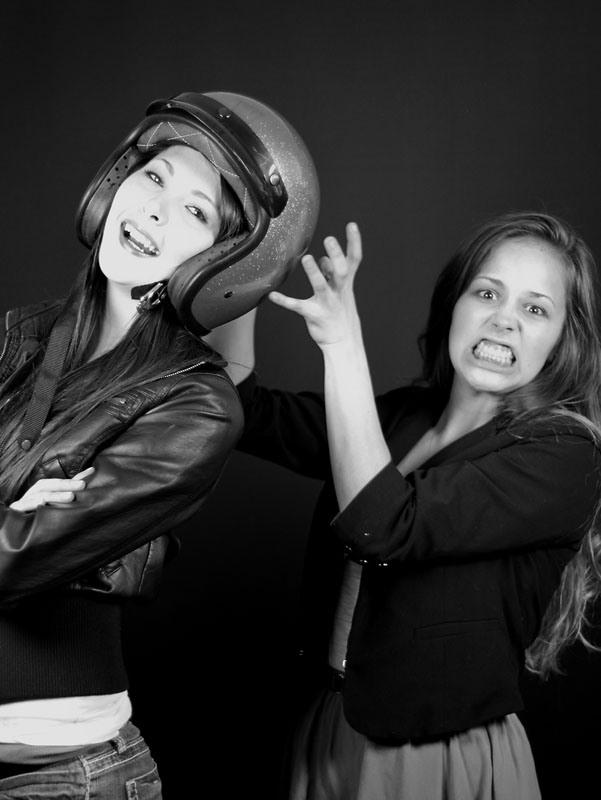
All others by Jessi Proulx
The RANT ::: HELMET HEAD
Written by Nadya Simakov and Julia Garcia
 Nadya: Transportation says a lot about a person—and four wheels are so old school.
Nadya: Transportation says a lot about a person—and four wheels are so old school.
Not only are they bold and exciting, motorcycles are pretty practical.
Generally, motorcycles cost less in terms of repairs and parts. Motorcycle insurance is also cheaper, and less expensive than insuring an entire car. The average cost of motorcycle insurance is nearly ¼ the price of auto insurance. They have better gas mileage, which saves time and money. In terms of road tax, the motorcyclist also pays lesser road tax because the motorcycle occupies lesser road space. Also they take up less space and it’s easier to find a parking spot.
“Motorcycles turn a wimp into a man,” says HHS senior, Lika Zinchenko. They possess that bold appeal no matter how cheap—cheap cars can’t avoid looking like the clunkers they are. And come on, the Nissan Cube?
You can also do a lot of tricks on a motorcycle, since it’s easier to maneuver. Because of this, they are more evadable and have an easier time dodging accidents—less metal to move. Motorcycle riders are safer; they don’t text on their phones while riding. Motorcyclists are required by law to wear a helmet—not the case in a car.
Sure, motorcyclists can die in a car accident, but many people ignore the fact that lots of people who drive cars also die. When we go behind the wheel we’re taking a risk no matter what kind of vehicle we are in, have it be a motorcycle or a car. According to census statistics, there are 6x more deaths in a car than in a motorcycle.
Not just anybody can drive a bike—the tests for motorcycle license are significantly more difficult. The motorcycle written test is more demanding than that for a driver’s license. For the performance part, the examiners follow the rider in a car, making certain they obey every rule.
Bikes get thrills, bikes get attention, and bikes get practical.
Julia: When I was younger, I went with my daycare to the nickel arcade. A man on a motorcycle hit the cement divider and he flew head forward over his bike—he wasn’t wearing a helmet and ended up going to the hospital in an ambulance. Since that day, I’ve been scared to ride a motorcycle and haven’t since.
In 2010 the government estimated that the number of deaths on a motorcycle was about 30 times the number of deaths in cars.
Not only do they have great potential for being dangerous, but motorcycles are just plain impractical.
Motorcycle wheels don’t get great traction in the rain. We live in the Rain State which rains on average about 150 days of the year leading to dangerous lack of traction—the ride would just be unpleasant and dripping. And then there’s the lack of space for people and stuff—why ride a motorcycle with only two seats if you can have a car with five? There’s more room in a car for friends and shopping bags, not to mention shelter year-round and air conditioning.
The appeal of a motorbike doesn’t define the appearance of the person riding it—you could look perfectly fine, if not better, in something else less accident prone; after all, it’s not always about looking good. Safety first.
If you want a cool breeze running through your hair, roll down the window. It’s in June, July, and August that highest percentages of motorcycle deaths occur and I don’t plan to be one of them. I want to spend my last summer having fun and being safe, not in a hospital room or worse.





 I first started thinking about my sexual orientation on a field trip in middle school. We were going swimming. I saw my friend changing clothes and realized I was looking at them differently. That was the first time I really started thinking about my feelings.
I first started thinking about my sexual orientation on a field trip in middle school. We were going swimming. I saw my friend changing clothes and realized I was looking at them differently. That was the first time I really started thinking about my feelings.